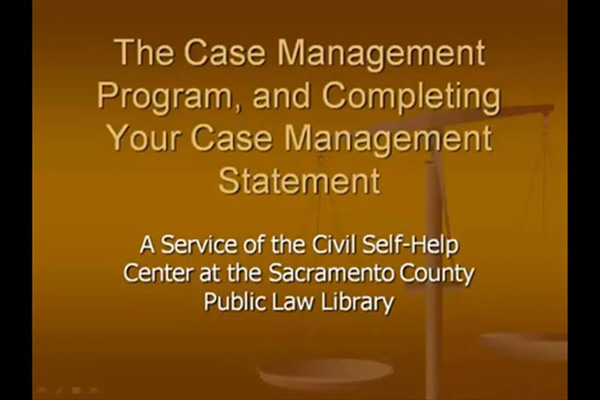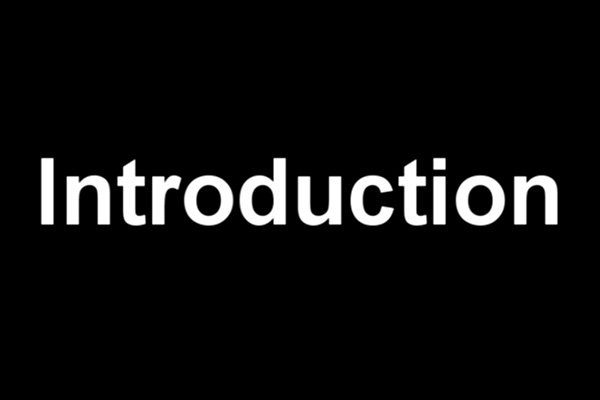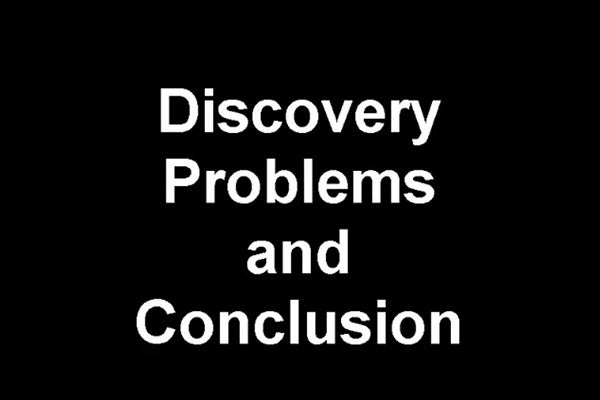Discovery Process: Getting Evidence From Other Side Category: Courts and Procedure
Overview
Discovery is the formal process parties use to a case gather information and evidence from each other in preparation for trial. Parties are entitled to demand information “reasonably calculated to lead to admissible evidence.”
Before a trial, the parties use discovery to gather evidence. Discovery methods include depositions, interrogatories, request for production of documents and things, and subpoenas. If the responding party refuses, the requesting party can bring a motion to compel them to comply.
Discovery procedures take place outside of court and the paperwork is only filed if the parties cannot resolve disputes between themselves.
Discovery Videos for Self-Helpers
SH@LL and the Law Library have produced a series of videos for people representing themselves in California civil cases.
This series of videos will help you understand what discovery is, how to answer questions you received by mail, and how you can use discovery yourself. Download the Sample Discovery Handout before watching the videos.
Watch our video playlist on YouTube.
Discovery: Gather Information for Your Case
Discovery is a formal legal process through which parties to a case gather information and evidence from each other. This can be the most important step in a case because it allows the parties to obtain the information and evidence needed to present their arguments; to determine what evidence the...
Read MoreCivil Self Help Services
Courts and Procedure

Civil Self-Help Services (SHS) helps people without lawyers who have questions about simple issues related to a civil case. They can give you general information and help you prepare your own forms in the area of civil law. Common topics include civil harassment restraining orders, petitions for change of name/gender, and expungement of criminal convictions.
Discovery: Business Records Subpoena (except consumer or employment records)
Parties in a lawsuit can use a “business records subpoena” to obtain records and information from non-party witnesses such as banks, employers, or police departments. (Cal. Code of Civil Procedure (CCP) § 2020.410.) The procedure requires several steps and takes several weeks, so start early. Templates and Forms Deposition Subpoena...
Read MoreDiscovery: Depositions
A deposition is the taking of a statement of a witness or party under oath. The deposing party (the “asking” person) may ask the deponent (the “responding” person) questions to obtain information, to discover what the party knows about a situation or event, and to determine what their testimony would...
Read MoreDiscovery: Exchange of Expert Witness Information
After a trial date is set, any party may demand the simultaneous exchange of information about the expert witnesses all other parties intend to have testify at trial. California Code of Civil Procedure (CCP) § 2034.210(b) defines “experts” as parties, employees of a party, or witnesses who have been retained...
Read MoreDiscovery: Form Interrogatories
Interrogatories are written questions sent by one party to another, which the responding party must answer under penalty of perjury. Interrogatories allow the parties to ask who, what, when, where and why questions, making them a good method for obtaining new information in a case. There are two types of interrogatories: form interrogatories...
Read MoreDiscovery: Requests for Admission
Requests for admission are used to ask another party to admit that certain facts are true, or that certain documents are authentic. If admitted as true or authentic, these facts and documents do not need to be proven or authenticated at trial. This helps narrow the scope of controversy in...
Read MoreDiscovery: Request for Production of Documents and Things
Obtain Documents and Things from the Other Party Requests for production may be used to inspect and copy documents or tangible items held by the other party. Generally, a request for production asks the responding party to make available the original documents, but a requesting party may permit photocopies of...
Read MoreDiscovery: Responding to Requests for Admissions
Requests for admission are used to ask another party to admit that certain facts are true, or that certain documents are authentic. If admitted as true or authentic, these facts and documents do not need to be proven or authenticated at trial. This helps reduce the number of disputed facts...
Read MoreDiscovery: Responding to Interrogatories
Interrogatories are written questions sent by one party to another, which the responding party must answer under penalty of perjury. Interrogatories allow the parties to ask who, what, when, where and why questions, making them a good method for obtaining new information. Templates and Forms Response to Interrogatories Template - DOCX Proof...
Read MoreDiscovery: Responding to Requests for Production or Inspection
Requests for production may be used to inspect and copy documents or tangible items held by another party. Although these requests are most commonly used to obtain copies of documents, they can also be used to test, measure, photograph, etc., any type of physical evidence in the other party’s possession...
Read MoreDiscovery: Special Interrogatories
Interrogatories are written questions sent by one party in a lawsuit to another party in that same suit, which the responding party must answer under penalty of perjury. Interrogatories allow the parties to ask who, what, when, where and why questions, making them a good method for obtaining new information....
Read MoreMotion to Compel Discovery Responses
Sometimes, as you conduct discovery in your civil case, the opposing side fails to respond to your formal discovery requests. If the opposing side does not respond to your form interrogatories, special interrogatories, or request for production, you may file a motion seeking an order compelling the opposing party to...
Read MoreMotion to Deem Facts Admitted
If a party fails to respond to a Request for Admissions entirely, the party who served the Request for Admissions is entitled to a court order deeming each of the facts listed in the Request for Admissions to be true, and each document listed in the Request to be deemed...
Read MoreRelief from Admissions
During discovery, each party may serve one or more sets of requests for admissions, asking the opposing side to admit that one or more facts are true or one or more documents are genuine. If a party admits a fact, or admits that a document is genuine, that fact, or...
Read MoreDiscovery: Business Records Subpoena (Consumer or Employment Records)
Getting records from a non-party business or organization Parties in a lawsuit can use a “business records subpoena” to obtain records and information from non-party witnesses such as banks, employers, or police departments. (Cal. Code of Civil Procedure (CCP) § 2020.410.) The procedure requires several steps and takes several weeks,...
Read More



 Back to Search
Back to Search 

